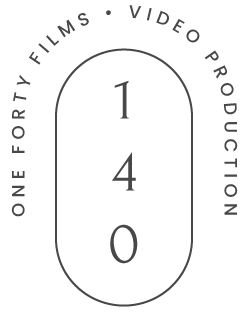Social media has become the go-to playground for businesses looking to connect with their target audience. And guess what? It’s your golden ticket to successfully marketing your next online course. Whether you’re an online course videographer or you’re a business owner looking to make a splash the next time you make an online course, rest assured that we’ve compiled everything you need to know.
Ready? Let’s do this.
Remember Who Your Target Audience Is
First things first: similar to when you’re in the works of creating an online course, it’s important to remember who you’re talking to when it comes to social media and content creation. Who is your audience? How do they speak? This should be a huge influence in what content you churn out to raise awareness for your online course.
Let us explain–let’s say your target audience is Gen Z. Your captions and content should speak their language (yes, this means you should probably be using some Gen Z-approved slang). By using audience-specific rhetoric and content, there’s a better chance your content will resonate with, and convert, more qualified leads.
Choose the Right Social Media Platforms
Remember, not all social media platforms are created equal. The best social media strategies are ones that are focused, and this hinges on the simple fact that you shouldn’t be on every social media platform. Certain demographics and audiences flock to different platforms. Make sure you’re using the ones that your target audience uses.
In addition, when you make an online course, you should consider that every social media platform caters to certain kinds of content better than others. Generally speaking–especially if you want to use mini clips of your online course in your promotional material–it’s probably a good idea to go with a social media platform that is video, or image focused.
- Instagram: This popular, tried-and-true platform favors photos, videos, stories, and reels that are attention-grabbing and heart-worthy. Beautiful text graphics, educational content, inspirational messages, memes, and even screenshots of Tweets are all over this platform. It’s also a great place to get user-generated content from your audience because users frequently share content and tag brands. Plus, most Instagram users are between the ages of 18-34, so it’s the perfect social network for companies and brands that target this demographic.
- TikTok: Perfect for bite-sized, entertaining video content for online courses in almost any industry. Whether your online course revolves around finance, videography, marketing, cooking, crafting, travelling, or anything in between, this robust social media platform has a little something for everyone. TikTok, like Instagram, is also a great platform to use if you’re targeting Millennials and Gen Z.
- Facebook: Facebook is the largest social networking site, with nearly 3 billion people using it monthly. This means roughly 37% of the world’s population are Facebook users. This platform is known for being casual and focused on connections and sub-communities. To get the word out about your online course with this social media platform, don’t forget to join relevant groups within your industry as well as groups where your target audience members are. For example, if your online course revolves around yoga, try posting in fitness groups.
- LinkedIn: While LinkedIn may not be the first social media platform you think of when it comes to videos, it can be a very powerful tool to use—especially if your online course is geared towards professionals. On this platform, you can connect with your professional network and publish videos, pictures, long-form copy, blogs, and more. When making an online course, you can also create anticipation and hype to your community of like-minded professionals who may be looking to learn something new.
Develop a Content Calendar
If you want to make an online course uber successful through organic social media, it pays to take some time to prepare. You don’t want to just post random content at random times and hope for the best. Creating an online course—even with the help of an online course videographer—takes time and money. The best foundational step you can take to set your online course up for success is developing a content calendar to keep your content organized.
It only takes three steps to create a kick-ass content calendar:
- Get Clear on What Content Themes You Want to Highlight: Since you know who your audience is and which platforms you’d like to use, try to pluck out a few content themes you’d like to highlight accordingly. For example, if you’re promoting an online course about social media marketing, your content themes could revolve around content marketing, social media advertising, and influencer marketing. Knowing the broad topics that you want to highlight to draw in your audience is a good way to give some shape to your content calendar.
- Put it All Together: Once you have the broad content themes nailed down, it’s time to get started on creating your content calendar around them. Choose a tool like Google Calendar or a simple excel spreadsheet to help you keep everything in order. We typically advise people to create a general calendar that encompasses a plan for all the posts they’d like to schedule across all social media platforms. Plan to schedule posts for each day of the week, or at least for every other day. Content calendars can be as detailed or as vague as you see fit, so make sure to communicate with your team to see what works best for them.
- Sign Up for a Social Media Management Tool: Sign up for an account with a social media management tool like Sendible or Buffer so once you have your content developed, you can schedule everything out exactly as planned.
Create Some Content
This is where the fun begins!
Creating high-quality content is one of the more fun and important steps of successfully promoting your online course. This is where you can let your creativity really shine through to your audience.
Armed with your content calendar as your guide, it’s time to make an online course content plan that shines.
Here are a few general tips that will keep you on the right track:
- Keep Your Audience in Mind: We know, we know–we’ve harped on this quite a bit already. But it’s key to making sure your content successfully reaches your audience.
- Use your Online Course as A Source of Inspiration: Your online course is packed with valuable content, so why not use some of that material to create your social media content? Pull out key quotes or visuals from your course material and use these to create graphics for Instagram or Facebook. Alternatively, you could create short teaser videos that give your audience a taste of what they can expect to learn from your online course for Instagram or TikTok.
- Use Storytelling Techniques: Storytelling is a powerful way to engage your audience and create a connection with them. Use stories to illustrate important points and to show examples of how your online course has helped people in the past. For example, you could share testimonials from past course participants or create short case studies showing how your course has helped people to solve specific problems.
- Create Interactive Content: Social media users love interactive content such as quizzes, polls, and surveys. Use these tools to create content that will get your audience involved in your course material and create a sense of community around your online course. For example, you could create a poll asking your audience to vote on which chapter of your online course they’re most excited to learn about or a quiz to test their knowledge of key concepts.
If you want to make an online course social media strategy even more successful, you may need to enlist the help of an influencer. Which brings us to our next point…
Consider Hiring an Influencer to Help
Influencers are invaluable to getting the word out about pretty much anything nowadays. If your budget allows, don’t be afraid to reach out to relevant influencers to help you promote your online course. Collaborate with folks who do three things:
- Have a genuine interest in what your online course is all about
- Have a personality that resonates with your target audience
- Share a similar audience to yours
The trust and credibility they have with their audience will do wonders to getting you more qualified leads. For example, you could offer the influencer a free enrollment in your online course in exchange for them creating a video or blog post promoting it to their audience.
Engage, Engage, Engage
Social media is all about connection and communication. And if there’s one thing for sure, it’s that no one likes a one-sided conversation. Try to engage with your audience as much as you can—whether it’s through responding to comments, answering questions, hosting TikTok live sessions, or sparking conversations, it’s important to invest time and energy into ensuring your online presence is active and responsive. Not only does this add legitimacy to your brand, but it helps you build real connections with your target audience, which will lead to more and more conversions.
Don’t Forget to Harness the Power of Testimonials
Seeing is believing, right? Show potential students the power of your online course through real-life success stories. Encourage your students to share their experiences on social media. Then, repost and highlight those testimonials, spreading the word that your course is the real deal. When others see actual people crushing it, they’ll be eager to join!
Our Team Will Show You How to Create an Online Course That Thrives
Using these tips, you should be right on track to launching your online course and having a winning social media strategy to help propel it to success. However, if you’re worried about the quality of your content, or you and your team are swamped with all the other moving parts that go into creating an online course, we can lend a hand. As experienced online course videographers, our team at One Forty Films can help you create stand-out social media videos that will pack a punch.




















